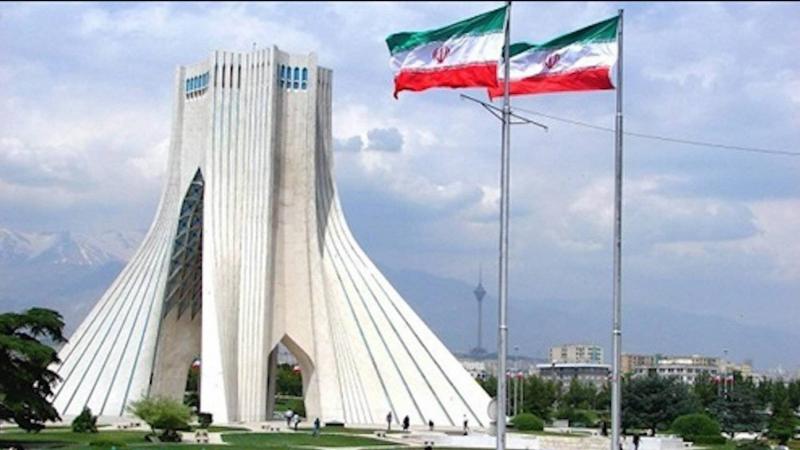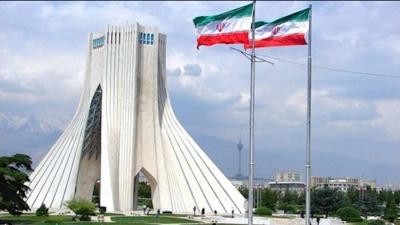Iran's response to the Israeli targeting of its consular section in its embassy in the Syrian capital, Damascus, has been delayed. More than a week has passed since promises were made to respond at all leadership, military, and political levels, with assertions that Israel and its leadership "will regret this act," according to the Supreme Leader in his first comment from an Iranian official. This delay may be deliberate, primarily aimed at placing Israel in a state of awaiting, anticipation, and alertness, as part of what is known as "psychological warfare." Additionally, it allows Tehran to gauge the reactions from relevant international capitals concerning Tel Aviv's predicament and the repercussions of the Hamas attack on October 7, particularly the stance of the United States and what actions it may take if Tehran were to respond.
Moreover, this waiting and delay provide an opportunity for the Iranian leadership and decision-making circles to absorb this development and evaluate its dimensions and potential consequences in case of a response or lack thereof. It also helps to calm emotional stances, allowing for a broader range of options. The Iranian regime appears embarrassed before the regional system it established in several countries, which has entered this battle against Israel under the banner of the Resistance Axis, uniting the theaters, yet all serving Tehran's regional strategy and the struggle for influence and interests between it and Israel on one hand, and between it and the Arab and regional states on the other hand.
The absence of an Iranian response could have negative repercussions for these factions, causing a sense of abandonment in the face of the Israeli military machine, which carries responsibility for choices that contributed to the destruction of infrastructure in their countries, along with significant human losses. Thus, their credibility before these factions, connected to them by ideological ties, could suffer a severe setback, forfeiting justifications for the ideological discourse it has developed and cemented over the decades.
Internally, the lack of initiative from the regime, the military establishment, and the Revolutionary Guard, and the failure to resort to a quick response option, despite the opportunity the Israeli strike has presented to translate high-pitched slogans and stances against Israel, may not imply that this system has ruled out the option of response from its agenda, as defending Iranian sovereignty is at stake. If violations are allowed, it will be susceptible to similar assaults in the future.
This prudence has opened the door for internal voices advocating for prioritizing reason and interest over emotions and displays of power, suggesting that these developments could transform into an opportunity to seek solutions for what the tense region is experiencing, which stands on the brink of full-scale war, especially if it falls into the cycle of retaliation and counter-retaliation. Iran could utilize this aggression to push towards achieving a comprehensive and lasting ceasefire in Gaza and the region, facilitating a political settlement for all crises.
Hence, one can interpret the diplomatic activity initiated by Foreign Minister Hossein Amir-Abdollahian from the Omani capital of Muscat, which is regarded as the most prominent and trusted intermediary for the Iranian regime in delivering messages between it and the American administration. This could lead to speculations about the possibility that Tehran might open a parallel channel to the military response track, attempting to leverage the threat of retaliation, which implies an open escalation concerning all possibilities, to initiate a serious dialogue with the American administration regarding the future of the war in Gaza, the prospects for the Palestinian Authority, and the position of the factions, in addition to all other files related to the sanctions crisis, the nuclear file, the American presence in Iraq, and the mechanisms for resolving issues in Lebanon and Syria.
Syria constituted the second stop in Abdollahian's diplomatic tour and the meeting he held with Syrian President Bashar al-Assad, who was briefed on Tehran's stance regarding the aggression targeting Iranian sovereignty on Syrian territory. It was indicated that the repercussions of Iran's initial response could lead to opening all fronts if Israel retaliated against that response. The subsequent escalation would not be limited to the Iranian side but would also involve all forces of the axis, including the Syrian front. This assessment likely influenced the meeting Abdullahian had with the Houthi negotiating delegation head, Mohammed Abdulsalam, in Muscat.
This fluctuation between the possibility of opting for a comprehensive, "written," and announced settlement with Washington and the response option does not eliminate the necessity and inevitability of retaliation due to the pressures faced by the Iranian leadership both internally and internationally to restore the "deterrence equation" to limit or halt Israeli aggressions, despite the potential for facing open escalatory steps leading to direct confrontation with the U.S. This confrontation would not serve Iran and the regime, particularly since the regime does not wish to engage in a "gamble" that forces it to place all the achievements it has secured over the decades on the "adventure" table that Israeli Prime Minister Benjamin Netanyahu has set for it.
Without a doubt, the Iranian leadership, after opting for a confrontational stance and the choice of retaliation, may resort to exercising significant restraint and striving to achieve a balance between its need to restore deterrence, maintain the trust of its allies, and prevent the disintegration of the coalition it leads, or at least destabilizing it, and what it could achieve in terms of interests and settlements should it choose not to retaliate. This seems evident from the fluctuation that may justify this leadership in extending the time to execute the retaliation decision, under the pretext of retaining this right and the freedom to choose the appropriate timing and place.




